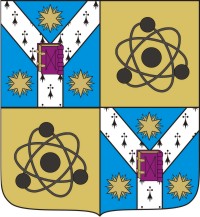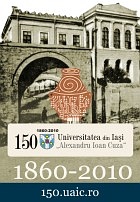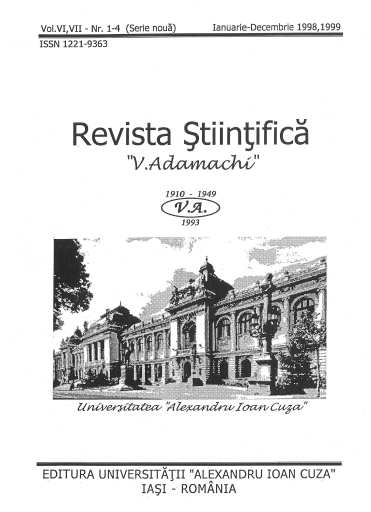 Facultatea de Fizică
Facultatea de Fizică
Universitatea "Al.I.Cuza" Iaşi
|
| Titlu: Magnetism - Electromagnetism Teaching electromagnetic phenomena |
| Autori: Vasilica Gafton1, Evangelos Vitoratos2, O. F. Caltun1 |
| Afiliere: 1Faculty of Physics and Carpath Center,
Alexandru Ioan Cuza University, 700506 Iasi, Romania,2Department of Physics,University of Patras, 26500 Patras, Greece |
| Abstract: Children's mental representations about physical concepts and phenomena play a vital role in the learning process. This is confirmed by the data derived from relevant research which demonstrate that the students formulate incompatible ideas compared with the scientific ones.
The aim of this work is to describe some physical experiments carried out in a laboratory in order to facilitate student's understanding of the nature and of the properties of the magnetic field. The magnetic field reveals itself by following a range of interesting properties: forces that are exerted from a distance, attractive and repulsive forces between magnets and conductors carried by electric currents, detection of earth's magnetic field.
A great part of the research in Science Education concerns the study of different age children's mental representations about Physics fundamental concepts as well as their representations about phenomena of physical world. It is very important for Science teachers and trainers, to underscore the distance between the scientific knowledge about the magnetic field and its properties, and pupils’ representations.
A study of students’ representations was carried out through directive individual interviews and took place in laboratory classrooms. Each interview lasted 20 minutes approximately and it was conducted after the end of teaching activities. Three experimental subsequent tasks were proposed to the students and the conversation was centered on student's representation on magnetic phenomena. The introduced tasks did not have any purpose to seek from children recalling or reproducing concepts which they had developed during the classroom activities. By using these tasks do not lead to one-way answers such as “right-wrong”, but to open a conversation which allow the formulation of alternative answers. Indeed, during the elaboration of student's responses, by making different assumptions, were formulated alternative solutions confirming diverse representations of the concepts. This dimension is significant in the context of re-examining the teaching practices or/and teachers training. |
Download link:
|
|
|



